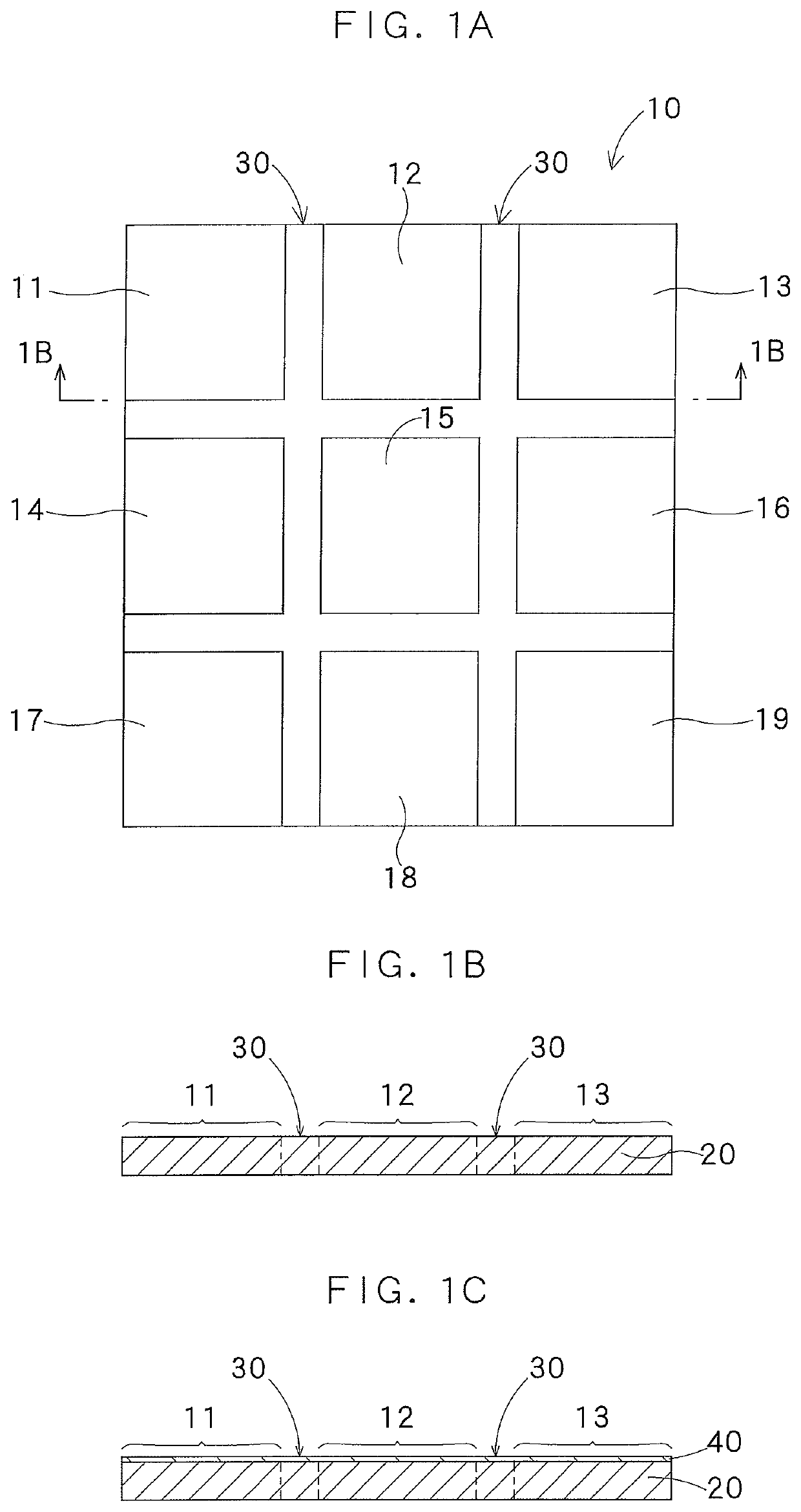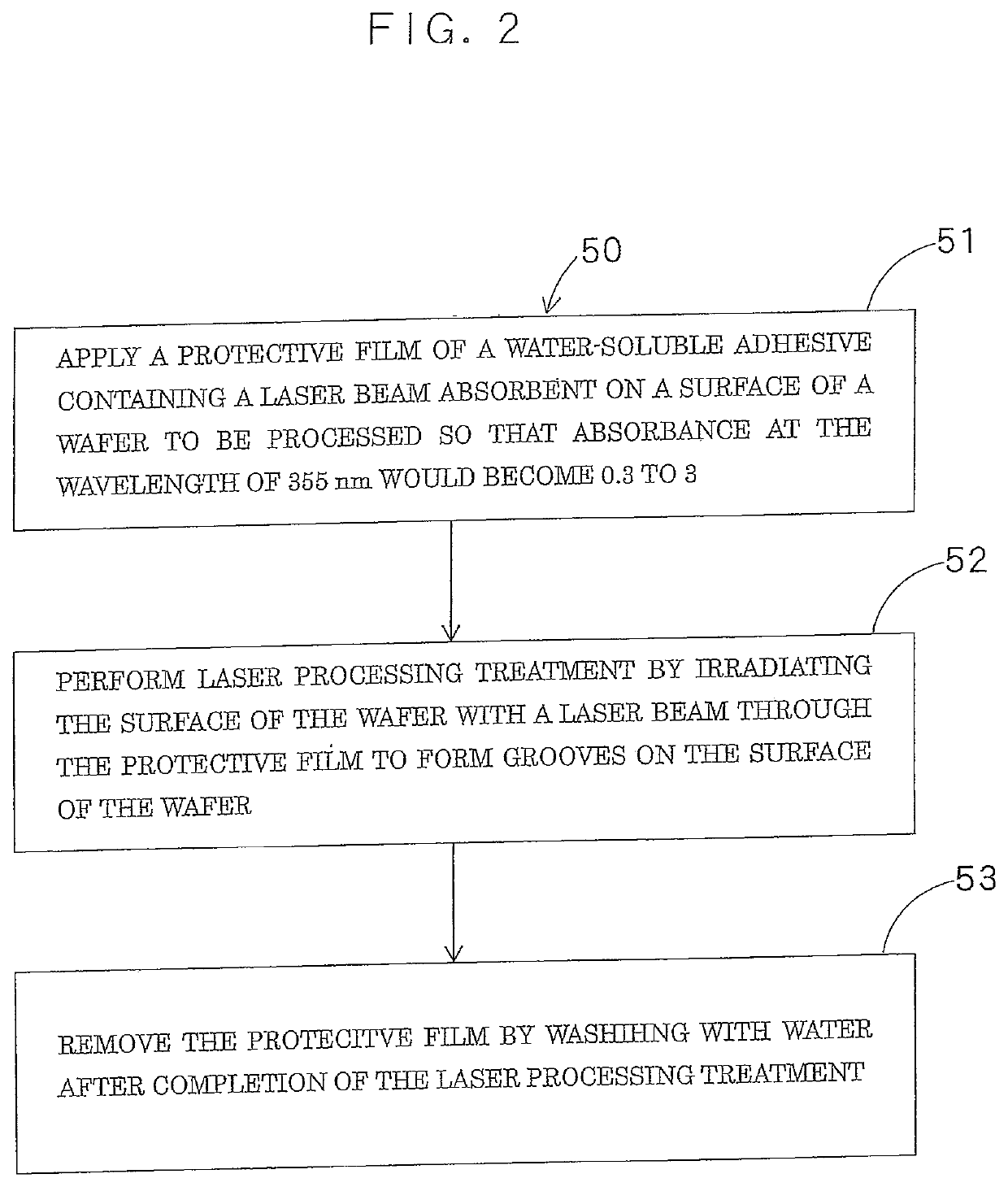Protective film material for laser processing and wafer processing method using the protective film material
a protective film and laser processing technology, applied in the direction of unsaturated alcohol polymer adhesives, amide/imide polymer adhesives, manufacturing tools, etc., can solve the problems of insufficient removal of debris, complex installation and operation of apparatuses and working conditions, and debris that is also unwantedly attached to the surface of the device, etc., to achieve the effect of easy removal by washing
- Summary
- Abstract
- Description
- Claims
- Application Information
AI Technical Summary
Benefits of technology
Problems solved by technology
Method used
Image
Examples
example 1
[0065]16.2 mass % of PVA, 0.8 mass % of PNVA-1, 1.5 mass % of the laser beam absorbent, 0.6 mass % of TEA, 1.0 mass % of phenyl glycol, 15.0 mass % of PGM and 64.9 mass % (balance) of the pure water were thoroughly mixed to obtain a protective film material for laser processing.
examples 2 to 4
[0066]Protective film materials for laser processing of Examples 2 to 4 were obtained on the basis of the compositions as shown in Table 1 in accordance with the procedure of Example 1.
example 5
[0067]13.1 mass % of PVA, 1.0 mass % of PNVA-2, 1.85 mass % of the laser beam absorbent, 0.75 mass % of TEA, 1.0 mass % of phenyl glycol, 15.0 mass % of PGM and 67.3 mass % (balance) of the pure water were thoroughly mixed to obtain a protective film material for laser processing.
PUM
| Property | Measurement | Unit |
|---|---|---|
| pH | aaaaa | aaaaa |
| temperature | aaaaa | aaaaa |
| wavelength | aaaaa | aaaaa |
Abstract
Description
Claims
Application Information
 Login to View More
Login to View More - R&D
- Intellectual Property
- Life Sciences
- Materials
- Tech Scout
- Unparalleled Data Quality
- Higher Quality Content
- 60% Fewer Hallucinations
Browse by: Latest US Patents, China's latest patents, Technical Efficacy Thesaurus, Application Domain, Technology Topic, Popular Technical Reports.
© 2025 PatSnap. All rights reserved.Legal|Privacy policy|Modern Slavery Act Transparency Statement|Sitemap|About US| Contact US: help@patsnap.com


